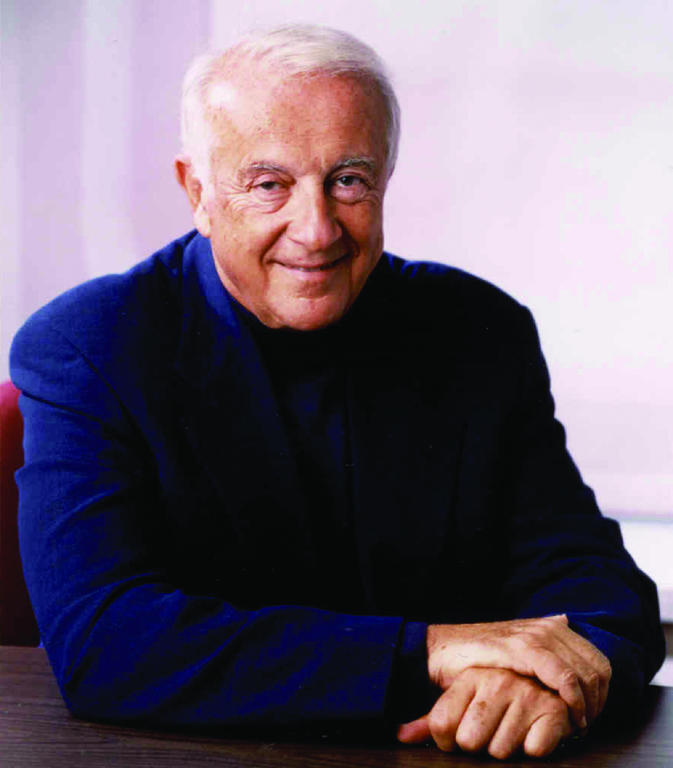Short abstract
Cardiologist and author of the bestselling diet book in history
Robert Atkins, cardiologist and author of the bestselling diet book Dr Atkins' New Diet Revolution, was dismissed as a faddist or worse by most mainstream experts. He promoted carbohydrate restriction and a high protein, high fat diet, urging patients to “eat the hamburger and throw away the bun.” His theories triggered a bitter dispute between those who would limit fats and those who would limit carbohydrates.
Figure 1.

AP PHOTO/ATKINS CENTRE
Atkins' followers saw him as a courageous David standing up to the establishment Goliath with its wrong-headed ideas and vested interests. Rejected by the medical community, Atkins appealed directly to the public. Popular support for the Atkins diet grew at an astonishing rate. His book Dr Atkins' Diet Revolution, first published in 1972 and reissued 20 years later as Dr Atkins' New Diet Revolution, sold 12 million copies, making it the bestselling diet book in history.
Although millions of people battling the bulge swear by Atkins, the US National Institutes of Health (NIH) has never undertaken studies of popular diets—until recently. The stakes are high: 325 000 deaths in the United States each year are attributed to complications of obesity. Direct healthcare costs are pegged at $39bn to $52bn annually. Spending on the weight loss and diet industry is estimated at $50bn a year.
Both Atkins, in the carbohydrate-restriction camp, and his detractors, in the fat-restriction camp, espouse theories about the “glycaemic index” or they track surrogate markers such as cholesterol levels and urinary excretion of calcium in support of their diets. Yet there are few long term data about actual clinical endpoints such as death, heart attack, or cancer rates using intention-to-treat analyses of weight loss diets.
Bonnie Liebman, director for nutrition at the Center for Science in the Public Interest, says most studies by the NIH focused on varying dietary compositions while keeping calories constant. “That kind of study fails to mimic the real world because it doesn't measure the impact of fat, protein, or carbohydrate on your appetite. Feeding participants in a study three meals a day is very different than telling them to go out and choose a diet of foods that are high in fat or protein or carbohydrate. Given the fact that millions of people were already following Atkins' diet, it was irresponsible for the government not to test its safety, much less its efficacy.”
Throughout most of his career Atkins resisted scientific scrutiny, saying he was a clinician, not a researcher. He also displayed a distaste or lack of appreciation for the scientific method. Dr Eric Westman, associate professor of medicine at Duke University, said that when he approached Atkins for funding to study the Atkins diet, Atkins replied, “Why should I support a study? It's all in my book.” Westman said, “I've read your book and it's all anecdotal.” Atkins retorted, “But I know what a study will show.”
Atkins said that mainstream medicine's demand for proof simply functioned to “maintain it at its current level of ineptitude.” Defenders of Atkins argue that these are merely the words of a man who distrusted the biases of mainstream medicine rather than a blanket rejection of science.
In the end, Atkins finally agreed that clinical studies might be a good idea. He founded the Atkins Foundation with his wife, Veronica, and endowed it with over $3m to study “controlled carbohydrate nutritional protocols.” Grants from the foundation have been awarded to Duke (for Westman's study), Harvard, Albert Einstein College of Medicine, and Ball State University.
To the surprise of many, results of the Duke randomised controlled trial comparing a low carbohydrate diet to a low fat diet, presented at the American Heart Association Annual Meeting in Chicago in November 2002, showed that patients on a high fat diet not only lost weight, but they also lowered their lipid levels. These results were widely trumpeted in the media as the long awaited “vindication” of Atkins and his diet.
But even researchers funded by the Atkins Foundation are more circumspect. George Blackburn, director of the Center for Study of Nutrition in Medicine at Beth Israel in Boston, says, “Anyone who would say Atkins is vindicated is misdirected.” Westman is equally cautious, saying, “We have a long way to go before we say this is a good thing to do.”
Sceptics are concerned in part because of the absence of long term studies needed to answer questions raised about the safety of the Atkins diet including whether it will promote osteoporosis, colon cancer, heart disease, kidney damage, and gout, as critics charge.
Atkins, described by his supporters as “driven,” devoted nearly all of his time to his work. In the end, Atkins made his mark because in bucking established medical dogma, and by creating a multimillion dollar company, he created so much heat that he finally could not be ignored.
Robert Coleman Atkins, founder and director of the Atkins Center for Complementary Medicine, New York city, United States (b Columbus, Ohio, 1930; q Cornell University Medical School, New York city, New York, 1955), died from complications following a head injury on 17 April 2003 after falling on a New York sidewalk.


